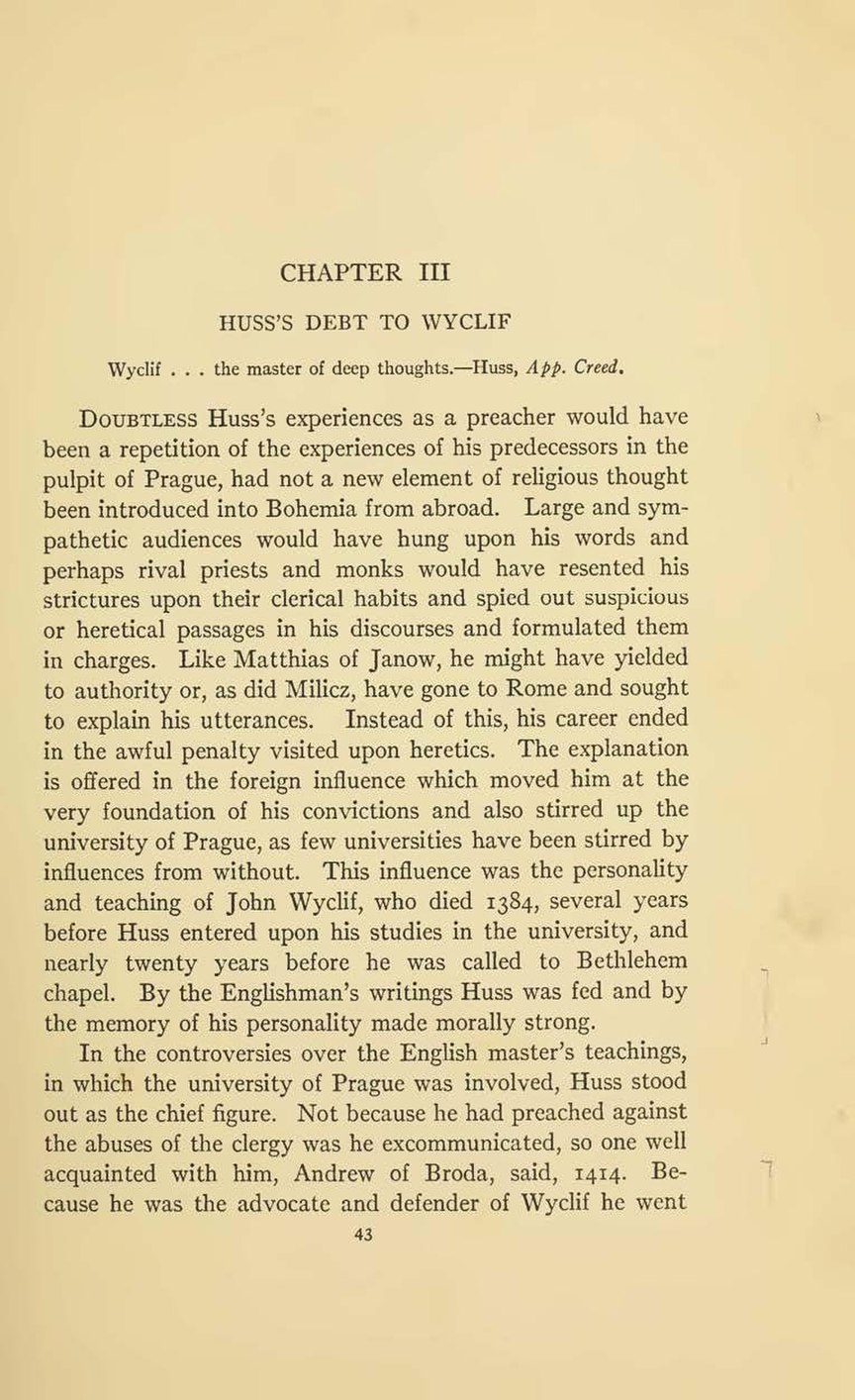Doubtless Huss’s experiences as a preacher would have been a repetition of the experiences of his predecessors in the pulpit of Prague, had not a new element of religious thought been introduced into Bohemia from abroad. Large and sympathetic audiences would have hung upon his words and perhaps rival priests and monks would have resented his strictures upon their clerical habits and spied out suspicious or heretical passages in his discourses and formulated them in charges. Like Matthias of Janow, he might have yielded to authority or, as did Milicz, have gone to Rome and sought to explain his utterances. Instead of this, his career ended in the awful penalty visited upon heretics. The explanation is offered in the foreign influence which moved him at the very foundation of his convictions and also stirred up the university of Prague, as few universities have been stirred by influences from without. This influence was the personality and teaching of John Wyclif, who died 1384, several years before Huss entered upon his studies in the university, and nearly twenty years before he was called to Bethlehem chapel. By the Englishman’s writings Huss was fed and by the memory of his personality made morally strong.
In the controversies over the English master’s teachings, in which the university of Prague was involved, Huss stood out as the chief figure. Not because he had preached against the abuses of the clergy was he excommunicated, so one well acquainted with him, Andrew of Broda, said, 1414. Because he was the advocate and defender of Wyclif he went
43
